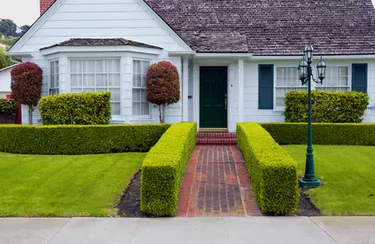
In a time when many people are out of work and lacking the money to make their monthly mortgage payments, their homes may become imperiled. If a homeowner is unable to get current on his payments or negotiate a loan modification with his lender, the bank will move to foreclose on the home. Once it has foreclosed on a home, it can sell it to recuperate its investment.
Process
Video of the Day
A bank or lender can't simply foreclose on a home overnight. The foreclosure process is a long one, with multiple opportunities for the homeowner to stop it in its tracks by either getting current on the loan, getting a loan modification or short-selling the property. During this process, the foreclosure is considered to be active. Most commonly, you'll hear this called a pre-foreclosure.
Video of the Day
Meaning
A pending foreclosure is considered active because the bank still has to take some steps to make it a done deal. Plus, the borrower can take steps to stop it. Too often, homeowners choose to figuratively bury their heads in the sands as the bank notices start to arrive in the mail. However, taking no action at this time will lead to a completed foreclosure, at which point the homeowner will be forced to leave his home.
Reporting
During an active foreclosure, your credit score will suffer because your mortgage will be reported to the three credit bureaus as delinquent. It will continue to be reported in that manner for each month you do not pay your mortgage or do not pay the full amount owed. Further, the bank or lender may also choose to report to the bureaus that it has started foreclosure proceedings against you.
Taking Action
The best thing you can do is talk to your bank or lender as soon as possible to find out just how bad the situation is and whether the bank or lender is willing to work with you. In some cases, it may be willing to take past-due payments and simply tack it on as an extra payment or payments at the end of the mortgage schedule. Other times, it will actually modify your loan to make it more affordable for you to get and stay current. As a last resort you might consider filing a deed in lieu of foreclosure, or voluntary foreclosure, which will affect your credit less than a regular foreclosure, or trying to sell your home as a short sale.